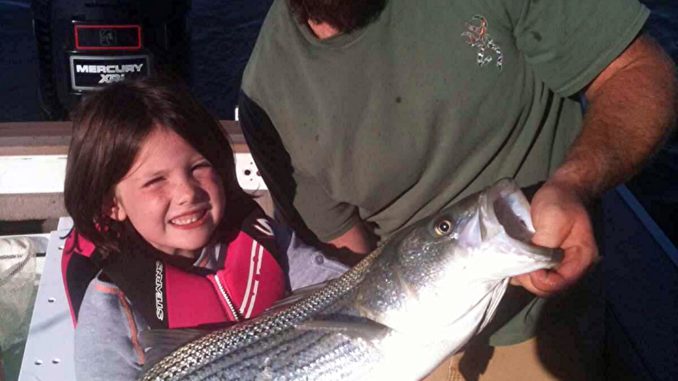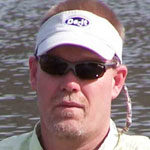
Mid-lake and lower-lake areas producing the most stripers, hybrids
With overnight temperatures moderating, Lake Hartwell fishermen, looking to capitalize on schooling striped bass, are getting what they wish for. Large schools of striped bass and hybrids can be seen from long distances in the mid-lake and lower lake chasing schools of baitfish on the surface.
Veteran striper fisherman Patrick Miller of Liberty, a member of the Striper Kings out of Greenville, said that finding schooling fish has just cut on with the changing water temperatures and should continue for several weeks until the lake begins to turn over.
“Late afternoon, from about 4 until dark, is the best time to find fish schooling,” said Miller. “The best days will be light or no wind and overcast. With a lot of wind, it’s hard to locate the fish on the surface.”
Although the two species will feed together, Miller said hybrid bass are the more aggressive and usually the quickest to get to the bait.
“The hybrids fight harder; a 4-pound hybrid will pull as hard as a 10-pound striper,” he said. “Fish also seem to school more by size and get bigger as the fall wears on.”
Top baits are noisy, splashing surface plugs like Sammys, Zara Spooks or hard-plastic jerkbaits. Other favorites include Alabama rigs and soft-plastic jerkbaits ranging from 3 to 5 inches long.
Miller suggests that stripers are likely to school most anywhere below the I-85 bridge. Large bays and coves off the main tributaries of the Tugaloo River and 6 & 20 Creek are popular areas. Others farther down the lake are the Greenpond Landing area, Singing Pines and the area in front of Big Oak access.
Anglers may slowly troll live or artificial baits while glassing adjacent water with binoculars looking for surface feeding. Schools as large as a half-acre are not uncommon, but most of the surface feeding will be isolated. When spotted, motor close to the area but cut your outboard well before you get there to avoid sounding the school.
Schooling fish rarely sound and travel great distances. When a school drops below the surface, sounds, remain in the area and wait, as the fish will usually regroup and surface again.


Be the first to comment